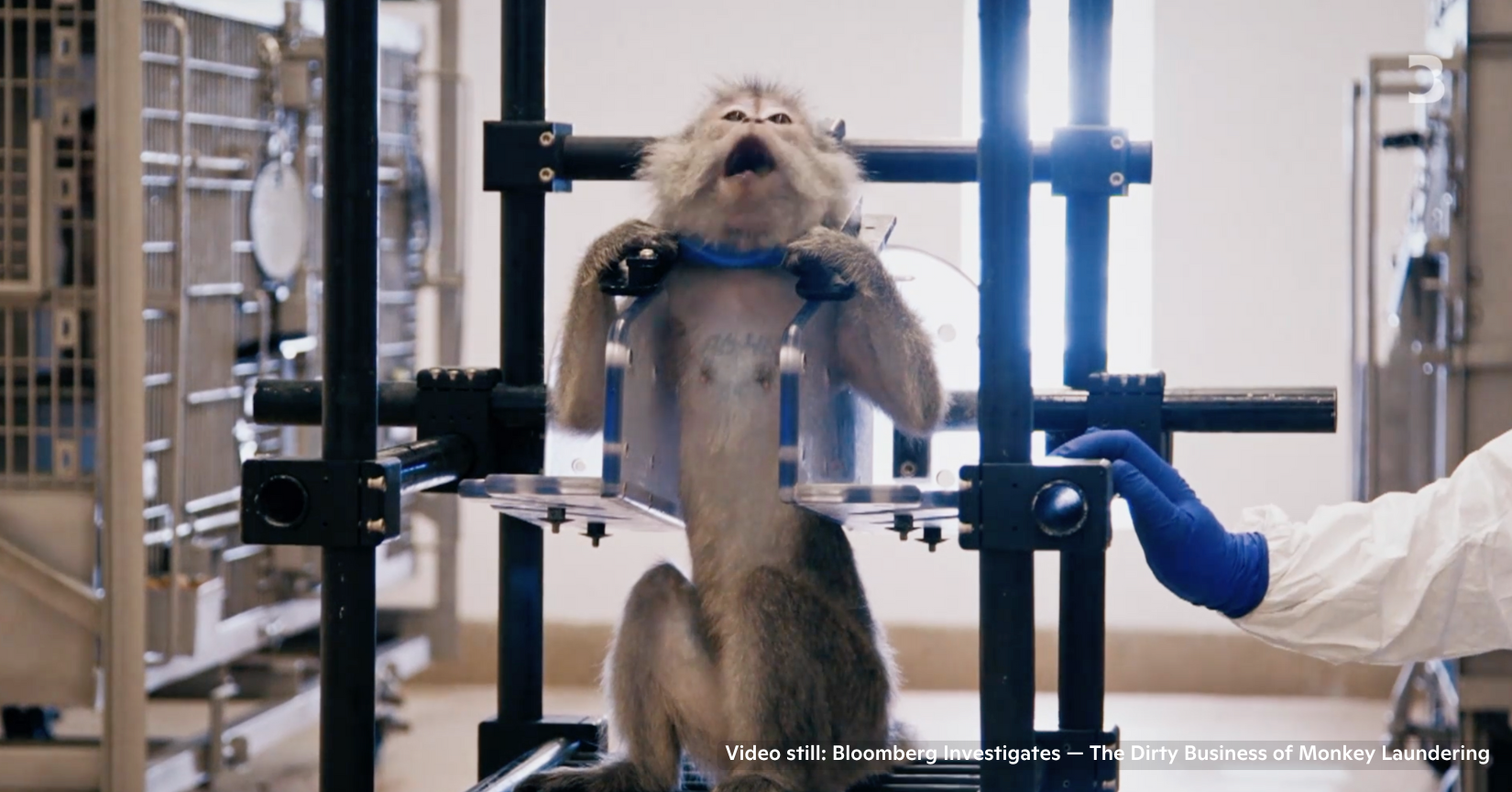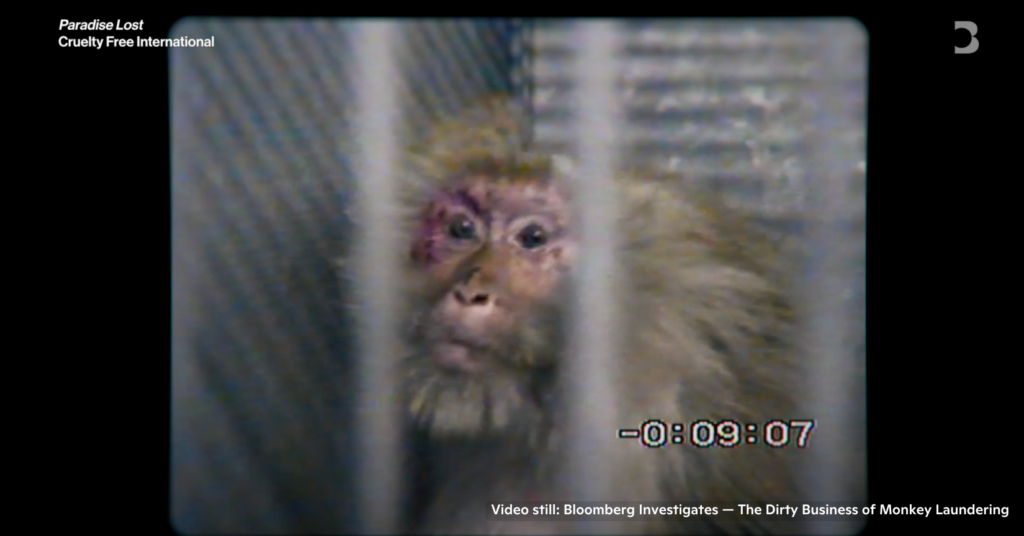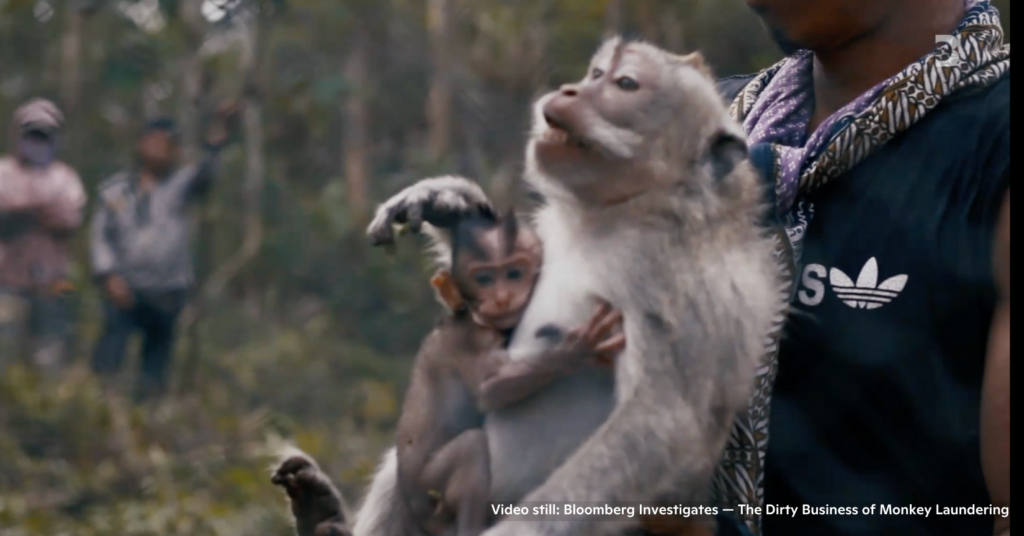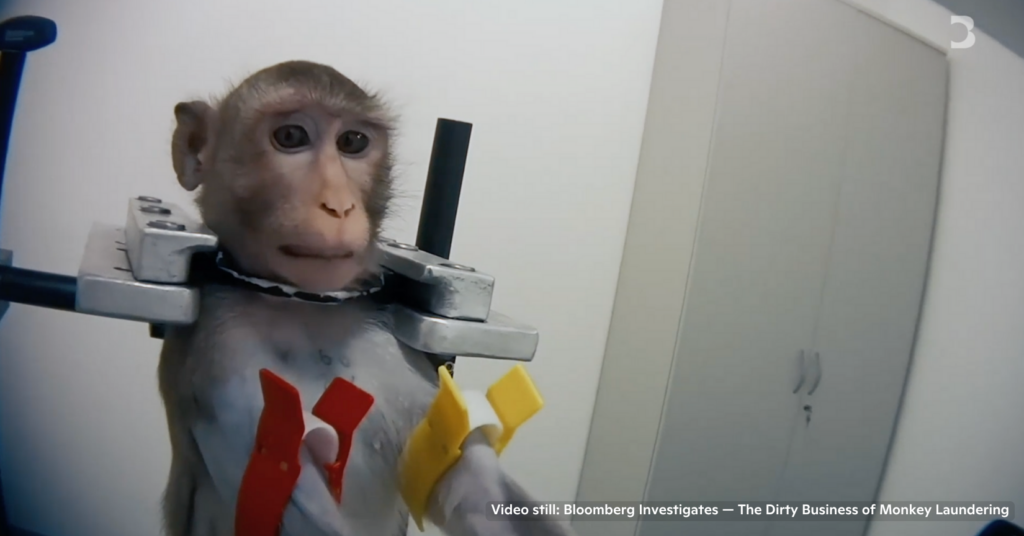
“You can torture the hell out of ‘em and they stay alive.”
This chilling statement from Princeton primatologist Augustin Fuentes captures the grotesque reality of the global trade in nonhuman primates for animal research. And this year, International Anti-Corruption Day – a global reminder of the pervasive impact of corruption – arrives just as Bloomberg News has unveiled a damning exposé of this industry.
Bloomberg’s short documentary The Dirty Business of Monkey Laundering pulls back the curtain on the corruption, barbarism, and greed that fuels the animal research industry, generally, and the trade in nonhuman primates, specifically.
This 26-minute feature shines a light on the “global market for wild monkeys, one where highly intelligent animals are ripped from their habitats to feed pharmaceutical industry demand–with unforeseen and potentially dangerous consequences for humans”.

At the forefront of this depraved global enterprise sits the U.S., the world’s largest importer and exploiter of macaques in the name of science.
As Bloomberg’s Jonathan Franklin explains:
The monkey business in the U.S. is multi-billion dollars a year. And the people buying them are companies like Charles River Labs, which is based in Boston. Huge company, 12 billion dollar market cap. Or you have Worldwide Primates. Company down in Florida, decades of experience. Inotiv, another company that is a monkey buyer and seller. It’s a huge business, but it’s a small club. There’s only four or five big players in this.
These “players” profit from a pipeline of unimaginable horror and suffering, of which this documentary provides us live-and-in-color glimpses:
- A small monkey confined to a plastic travel crate puts his head in his hands and rocks himself back-and-forth.
- A human, stifling laughter, says “you know he loves needles”, while a monkey is stabbed with a syringe through thick metal cage bars.
- Wriggling sacks, containing terrified wild animals ripped from their homes and families, are dropped on the floors of literal monkey prisons.
- A caged macaque throws himself against chain-link fencing while shrieking in despair.
- Caged macaques circle and jump endlessly in their tiny, barren cells.
- Macaques struggle to escape restraint chairs and the additional torture that is approaching.
- Tattooed and collared macaques cling to each other in barren metal cages.
This footage exposes the U.S. animal research industry for what it is: a perverse, for-profit scheme built on secrecy, suffering, and greed, which reduces nonhuman animals to commodities in the name of science.

Because of the U.S.’s leading role in this global enterprise, dismantling this industry would deal a devastating blow to the international trade in nonhuman primates. And, this brings us back to the day at hand, which aligns perfectly with our collective efforts.

Let International Anti-Corruption Day remind and inspire us to take action together to…
…demand integrity, transparency, and accountability;
…foster a culture of honesty and ethical behavior;
…and end animal research once and for all.